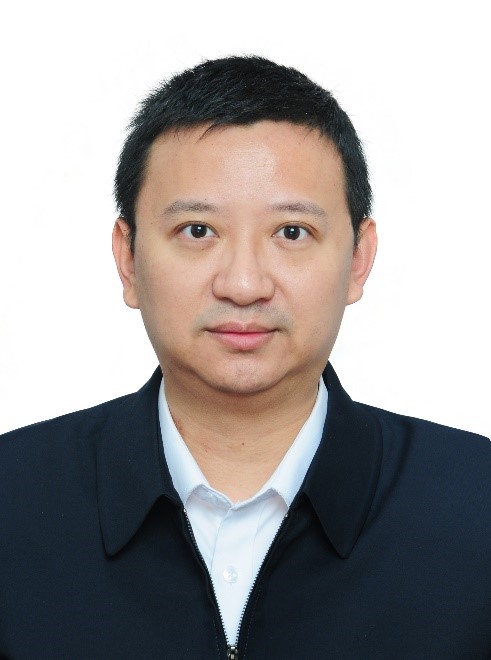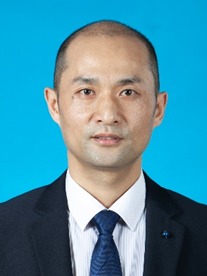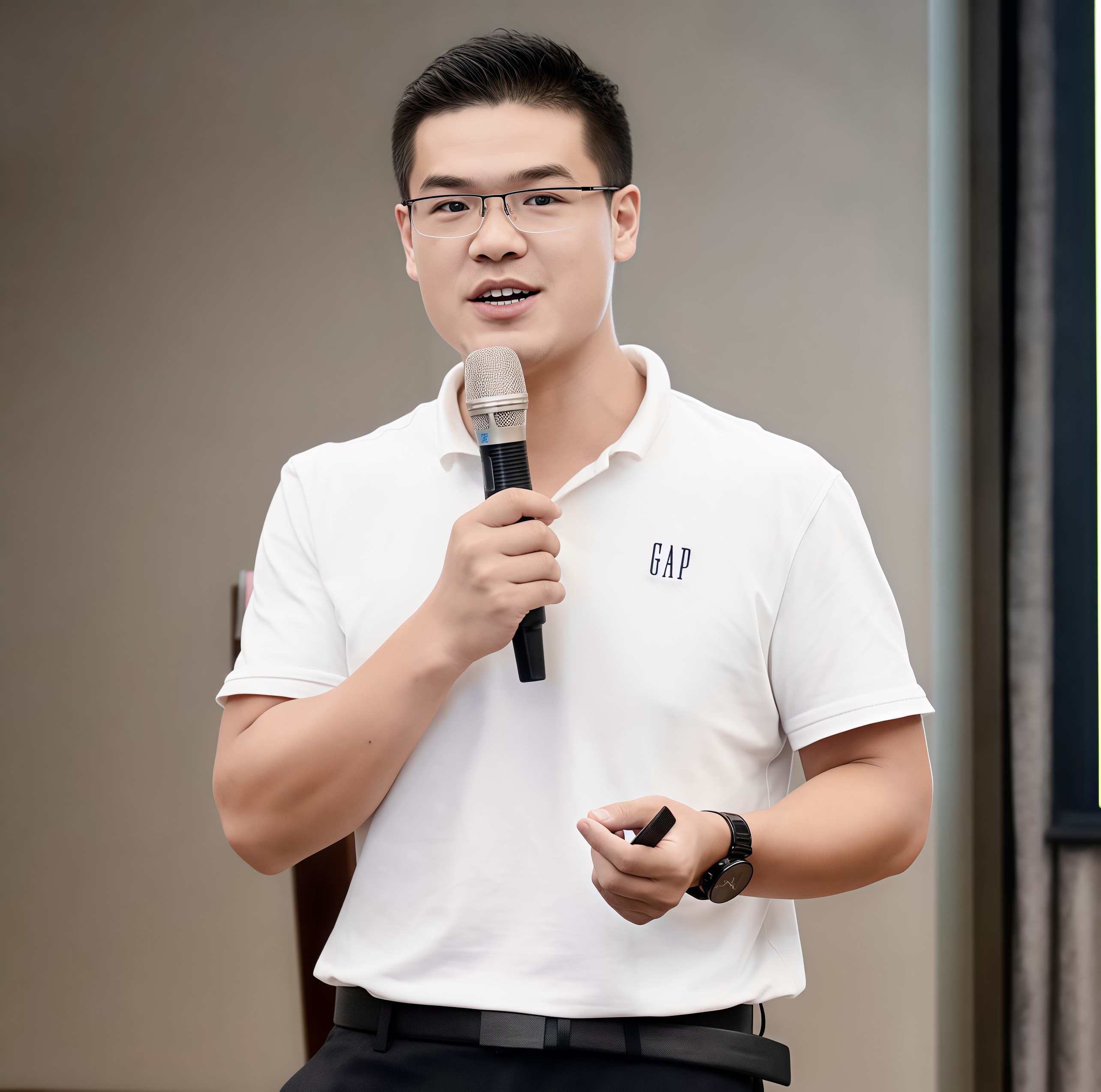Invited Speakers
Invited Speakers of ICET 2025 邀请报告人

Prof. Yu XIONG, Chongqing University of Posts and Telecommunications, China
Yu Xiong is currently a Professor and Ph.D. Supervisor with Chongqing University of Posts and Telecommunications (CQUPT), and the executive director of Chongqing Municipal Research Center for Educational Big Data. He also serves as the Vice Chairman of Technical Committee on Intelligent Education of Chinese Association of Automation (CAA), the Secretary General of Chongqing Higher Education Steering Committee for Teaching Informatization and Teaching Innovation, and the Senior Member of China Computer Federation (CCF). His research interests include artificial intelligence and smart education, pattern recognition and machine learning, and educational data mining. He has taken more than 20 research projects of provincial and ministerial level, including the National Natural Science Foundation of China, Chongqing Special Key Project for Technology Innovation and Application Development, Chongqing Key Research Project for Higher Education Teaching Reform, etc. He has published more than 60 academic papers in SCI, EI, CSSCI journals and conference proceedings. Besides, he was awarded 3 the first prize of Provincial and Ministerial-Level Science and Technology Awards and 1 the first prize of Provincial and Ministerial-Level Teaching Achievement Award.

Zhi Liu is a senior fellow researcher/professor and PhD supervisor at the National Engineering Research Center of Education Big Data, Faculty of Artificial Intelligence in Education, Central China Normal University, he is also the deputy director of the Department of Data Science at the faculty. He also holds a position as a guest researcher at the Computer Science Institute, Humboldt University of Berlin. With deep expertise in text mining, sentiment analysis, educational data mining and intelligent tutoring systems, Liu has published over 60 SCI/SSCI indexed papers in top journals, including Knowledge-Based Systems, Computers & Education, Internet and Higher Education, and IEEE Transactions on Learning Technologies. In addition, he serves as a key member of the national expert database for graduate education evaluation, a peer review expert for the National Natural Science Foundation of China, and the principal investigator of National Natural Science Foundation and the National Key R&D Program of China (2030 Major Projects). Liu is actively involved in international academic communities, serving in various leadership roles including as the chair of the organizing committee for the ICET. He is a guest associate editor for the international journal Frontiers in Artificial Intelligence and sits on the editorial boards of Discover Education and Frontiers in Psychology, and holds the Lifetime Member status of the Chinese Association of Automation. His contributions have been widely recognized, earning him numerous awards including the First Prize of the Science and Technology Progress Award of Hubei Province in 2024, First Prize of the Teaching Achievement Award of Higher Education Institutions in Hubei Province in 2022, and the honor of being a Top 1% Highly Cited Scholar in China National Knowledge Infrastructure (CNKI) for 2024.

Prof. Hywel Evans, Otsuma Women’s University, Japan
Dr. Hywel Evans has over forty years’ of experience in language education and research and has published scores of peer-reviewed scholarly papers in both linguistic theory and language teaching. He has presented his research at many conferences and has acted as chair of international conferences on a number of occasions. In addition, he has published textbooks and translations into English. He has a PhD in Theoretical Linguistics from the University of London, and he is vitally concerned with the intersection between linguistic theory and practical utility in language teaching. In particular, he is fascinated by how an understanding of human evolution can help us understand the process of learning as a way of bringing us back to basics in language education. Evidence from the phylogenetic domain prompts us to reconsider facets of theoretical linguistics that have had a profound effect on how we imagine that language-learning takes place. As a result, linguistic theory and practical applications can be re-worked and revived. He worked at Tsuru University, Yamanashi Prefecture, in Japan for many years, including a stint as head of the English Department. He is currently full-time professor at Otsuma Women’s University, in central Tokyo, in the Department of Language and Literature.

Assoc. Prof. Vincent CS LEE, Monash University, Australia
IEEE Senior Member
Vincent CS Lee is currently an Associate Professor with the Faculty of IT, Monash University and a Senior Member of IEEE. His education qualifications include Bachelor and Master degrees in EEE, both from the National University of Singapore; MBA from Henley Management College in Oxford, England; BBus (Hons 1st class in Economics & Finance) and MBus (Accountancy), both from RMIT University in Melbourne; and PhD degree from University of Newcastle, NSW in Australia. He is an active researcher and educator (with Graduate Certificate in Higher Education Teaching from Monash University) with 30 years as academicians for four universities including Monash University and Swinburne University, both in Melbourne, joint Monash-South East University in Suzhou, Nanyang Technological University in Singapore. He was visiting Professors with School of Economics and Management, and School of Computing and Technology, Tsinghua University in Beijing. Lee’s research and higher education teaching (developed and delivered undergraduate and postgraduate courses) span multi-disciplinary domains across IT, Digital Health, Signal and Information Processing, Financial Engineering (FinTech), Educational Data Mining (with learner-centric education technology tools), Explainable AI, Deep ML, Computer Vision for dynamic objects tracking, and Multi-agent Autonomous Systems. Lee has published 200+ papers in IEEE/ACM SCImago ranked Q1 High Impact factors of Journals, and in CORE A/A* Peer-review International Conferences proceedings (AAAI, IJCAI, ICDM, ICWS, ICDE, PAKDD, CIKM, WWW, IEEE IC Signal Processing, IC-EDM). Lee also served as invited keynote speakers for a number of these IEEE and ACM Flagship conferences’ and General Chair and Co-chair of steering committees and technical programs.

Assoc. Prof. Anuchai Theeraroungchaisri, Chulalongkorn University, Thailand
Dr. Anuchai Theeraroungchaisri is an Associate Professor
in the Department of Social and Administrative Pharmacy
at the Faculty of Pharmaceutical Sciences, Chulalongkorn
University. Additionally, he serves as the Deputy
Director of Thailand Cyber University at the Office of
Higher Education Commission, Ministry of Education.
Moreover, he holds the position of Deputy Director at
the College of Pharmacy Administration of Thailand.
He gots a bachelor's degree in Pharmaceutical Sciences
and pursued further education at Chulalongkorn
University, where he earned a master's degree in
Computer Sciences and a Ph.D. in Educational and
Communication Technology. With his role as the deputy
director of the Thailand Cyber University Project, he
has overseen several significant initiatives, such as
Thai MOOC (Thailand Massive Open Online Courses), The
Higher Education Credit Bank System, TCU-Globe
(Interoperability among the learning object repository
network, enabling search through a single query),
e-Learning Professional Development (the pioneering
fully online training certificate program).
In 2022, he was recognized as the "Most Valuable Person
in Educational Technology 2022" by the Thai Association
of Education and Communication Technology, as announced
during the 35th Annual Conference of Thailand
Educational and Communication Technology. Furthermore,
in 2019 he received the "Outstanding Pharmacist in
Pharmacy Education 2019" award from The Pharmacy Council
of Thailand.
His research interests encompass a wide range of topics,
including MOOC Policy, Academic credit bank and credit
transfer, Learning Design, Online Pedagogy, e-Portfolio,
Technology-Enhanced Learning, Learning analytics, and
Health Informatics.

Assoc. Prof. Fang XU, Nantong University, China
Associate Professor of Educational Technology, College
of Educational Science, Nantong University, Master
Supervisor, Ph.D., is engaged in the research of
digitalisation in education. He has published more than
60 academic papers in domestic and international
journals, including one SSCI source journal and 15 CSSCI
source journals as the first author, of which two were
reprinted in the Renmin University of China Newspaper
and Periodical Reprints. He has published 6 academic
monographs in Science Press, People's Publishing House,
China Social Science Publishing House and Jilin
University Press. He has presided over more than 20
projects, including the General Project of the National
Social Science Foundation, the Key Project of the
National Education Examination Scientific Research
Planning Project, the Online Education Fund of the
Ministry of Education, the Social Science Foundation of
Jiangsu Province, the Social Science Foundation of Henan
Province, the Key Research and Development and Promotion
Programme of Henan Province (Soft Science Project), the
Key Scientific Research Project of Henan Province
Colleges and Universities, the Social Science Foundation
of Gansu Province, the Key Project of the Chinese
Society of Higher Education for Education
Informatisation, and the National Scientific Research
Project of Foreign Languages, and so on. He has won more
than ten awards, including the Third Prize of Philosophy
and Social Science Achievements of Jiangsu Universities,
the First Prize of Excellent Scientific Research
Achievement Award of Education Science Planning of Henan
Province, the Second Prize of Excellent Scientific
Research Achievements of Gansu Universities, the Second
Prize of Philosophy and Social Science of Nantong City,
and other various awards. He was awarded the 2020 Young
Backbone Teachers of Universities in Henan Province. He
is now an expert in appraising the achievements of the
National Social Science Foundation.

Senior Researcher Dr. Feifei Han, Griffith University, Australia
Feifei Han is a researcher at Griffith Institute for Educational Research, Griffith University. She obtained her PhD from The University of Sydney in 2014. Her current research interests are in the areas of educational technology, learning analytics, STEM education, and learning and teaching in higher education. She serves as a lead editor of The Australasian Journal of Educational Technology. She has over 130 publications, some of which appear in top-quality journals in educational technology (e.g., The Internet & Higher Education, Computers & Education, and International Journal of Educational Technology in Higher Education) and higher education (e.g., Studies in Higher Education, Assessment & Evaluation in Higher Education, and Higher Education Research & Development). She has delivered keynote speech, invited talks, and presentations in over 90 international and national conferences and seminars. Her first-authored article “Students’ self-report and observed learning orientations in blended university course design: How are they related to each other and to academic performance?” has received “Top Cited Article Award 2020-2021” by the leading academic publisher – Wiley. In a recent bibliometric analysis of research in blended learning and teaching from 2013-2022, she is among the top four most prolific researchers, in the third place of the authors with the strongest citations, and the most cited author between 2020-2022 in blended learning and teaching. She is also on the Standford/Elsevier Top 2% Scientists List 2024 in educational research.

Assoc. Prof. Emad A. S. Abu-Ayyash, British University in Dubai, United Arab Emirates
Emad A. S. Abu-Ayyash is an associate professor of education/TESOL at the British University in Dubai, United Arab Emirates. He achieved his Ph.D in Education/TESOL from the British University in Dubai, in 2016, his M.A. degree (Hons) in translation from Yarmouk University, Jordan in 2007 and his B.A. degree (Hons) in English literature and linguistics from Yarmouk University, Jordan in 1996. His research interests and publications include areas such as TESOL, discourse analysis, teaching and learning, translation, assessment, and online education. Throughout his career, he provided training for hundreds of teachers on teaching methods and curriculum design. He participated in several local and international conferences in education.

Assoc. Prof. Guolong Quan, Jiangnan University, China
Dr. Quan is an Associate Professor at the School of
Education, Jiangnan University, holding a PhD from East
China Normal University. With over 15 years of
interdisciplinary research experience spanning learning
science and technology, educational informatization, and
AI-integrated pedagogy, his expertise centers on
e-learning systems, knowledge visualization design, and
technology-enhanced educational innovation.
Dr. Quan has spearheaded multiple national and
institutional research initiatives, focusing on
knowledge representation in STEM education, experiential
learning empowered by intelligent technologies, and
digital literacy frameworks for smart education. His
collaborative projects extensively explore the
intersection of pedagogical theory, data-driven
instructional design, and adaptive learning analytics.
Currently, his primary research investigates the
application architecture of adaptive learning systems
under evolving curricular and technological paradigms.
This includes systematic analysis of system
functionalities aligned with next-generation curriculum
standards, evidence-based design of AI-assisted teaching
models, and empirical evaluations to optimize
intelligent educational practices. His work contributes
to advancing scalable, personalized learning and
teaching solutions in digitally transformed educational
ecosystems.

Assoc. Prof. Yan Li, Hebei Normal University, China
Yan Li is an Associate Professor and the Director of the Research Center for Artificial Intelligence and Foreign Language Education at the School of Foreign Languages, Hebei Normal University. She is the principal investigator of a provincial-level project titled “Empowering Pre-service English Teachers with AI to Develop Critical Thinking and Intercultural Competence,” and has led two related institutional-level projects. In recent years, she has actively participated in numerous international academic conferences. Her research focuses on the integration of artificial intelligence in English education, with a specific interest in the professional development of English teachers in the Digital Era. Her work aims to bridge the gap between technology and pedagogy, fostering innovations in English education that align with the needs of a rapidly evolving globalized world.

Prof. Wentao Wu, Anhui Normal University, China
Wu Wentao, PhD in Education, Professor, and Doctoral Supervisor. Currently serves as Dean of the School of Educational Sciences at Anhui Normal University, and concurrently holds positions as Council Member of the Information Technology Education Society of the China Education Association and Council Member of the Information Technology Education Committee of the China Educational Technology Association. Research areas include the application of intelligent technology in education.
In recent years, he has published over 20 papers in high-level journals such as *Chinese Educational Technology*, with several papers reprinted in full by websites including Guangming Online, China Social Sciences Network, and Renmin University Reprint Materials.
Over the past three years, he has led nearly 10 research projects, including the National Social Science Fund Youth Project, the Provincial Philosophy and Social Sciences Youth Project, and the Provincial “Outstanding Youth” Project.
In recent years, he has been honored as an “Emerging Star of Anhui Province's Education Arena,” won the National Third Prize at the Second National Efficient Teachers' Teaching Innovation Competition, and received the First Prize in Anhui Province; he has also been awarded the Special Prize for Teaching Achievements in Anhui Province.